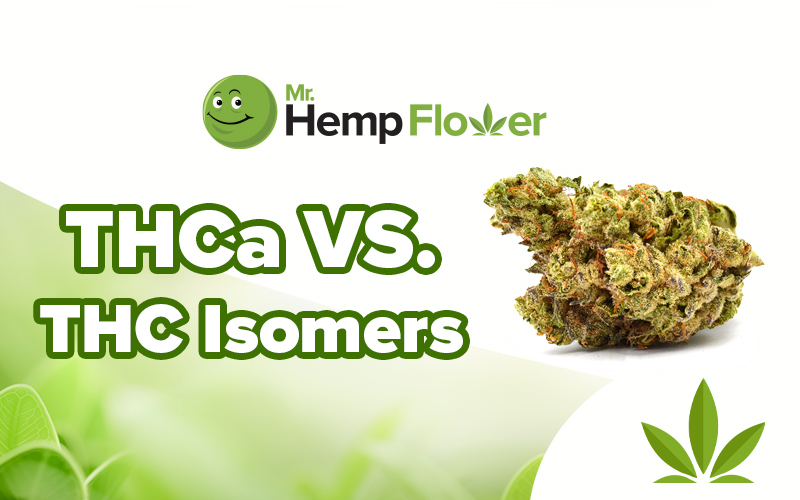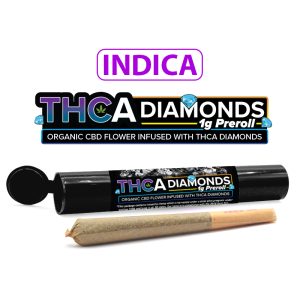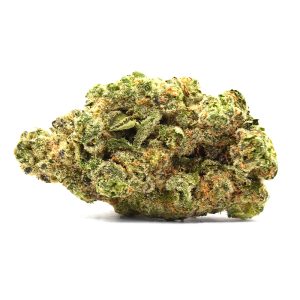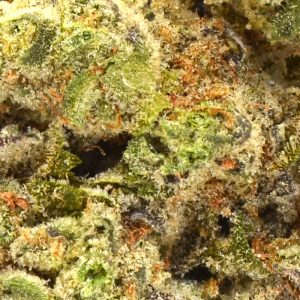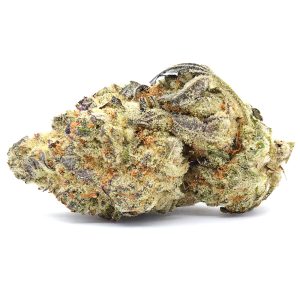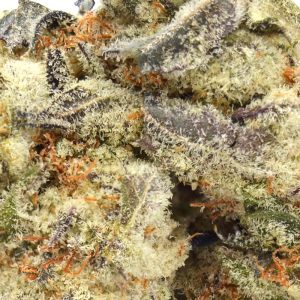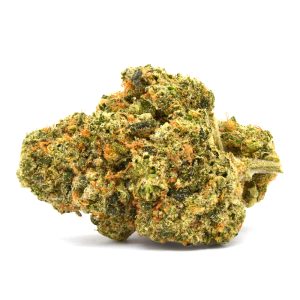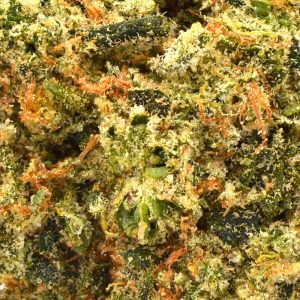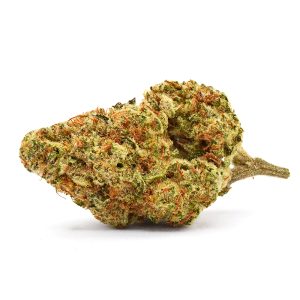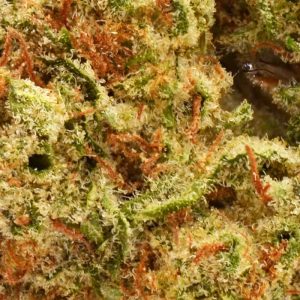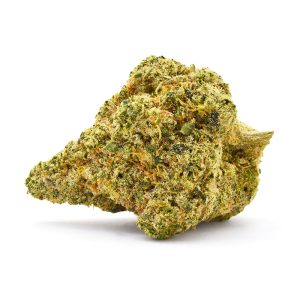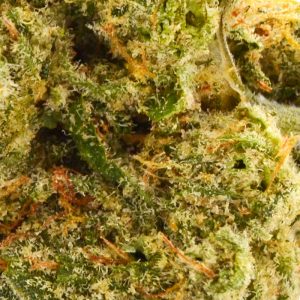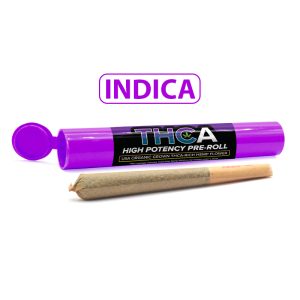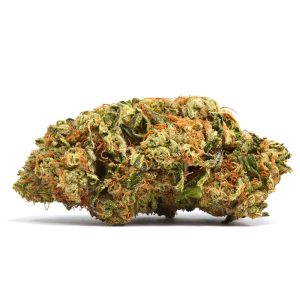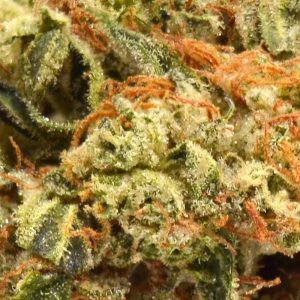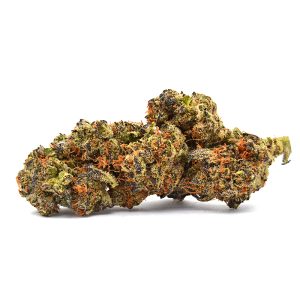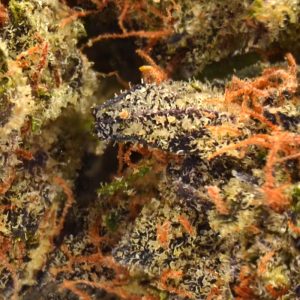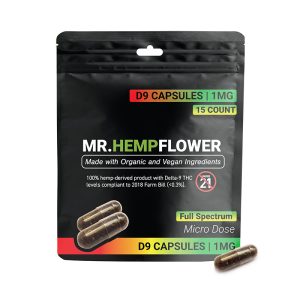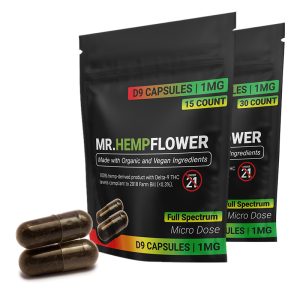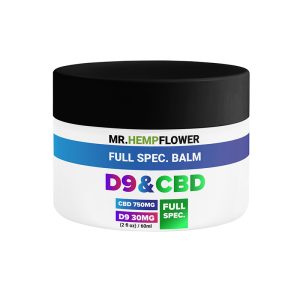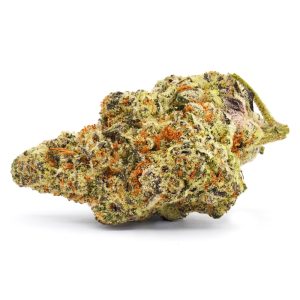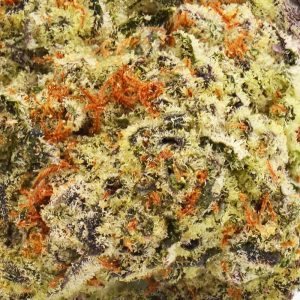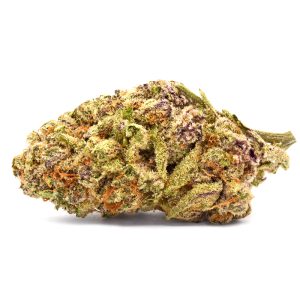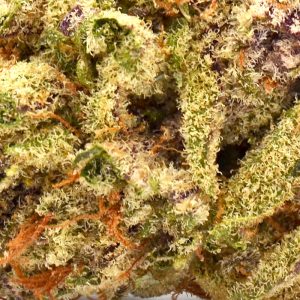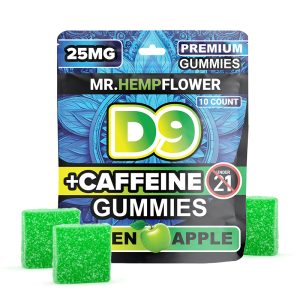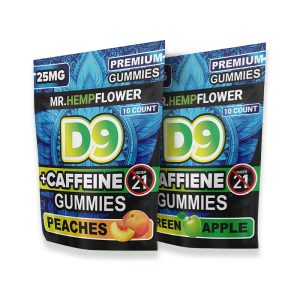Article Highlights:
- THCa is an inactive cannabinoid that doesn’t produce any intoxicating effects, while THC is the main psychoactive cannabinoid in cannabis.
- THCa is the precursor or parent molecule to delta 9 and delta 8 THC.
- THC isomers are a group of hemp-derived cannabinoids known as different versions of THC. This group includes delta 7, delta 8, delta 9, delta 10 THC, HHC, THC-O, and THCp.
- When decarboxylated, THCa flower is more potent than delta 8 flower.
- In its raw form, THCa is more similar to CBD than THC. Just because THCa is not intoxicating, that doesn’t mean it’s not potent.
- THC-O is synthesized using THCa in a lab.
Although they carry very similar names and are connected by “bloodline,” THCa is closer to CBD in terms of psychoactivity than THC isomers.
Both CBD and THCa are non-psychoactive hemp cannabinoids that naturally occur in the plant. And most THC isomers are potent molecules that create a psychoactive cannabis experience.
This article explores the differences and similarities between THCa and THC isomers, including chemical structure, potential therapeutic benefits, and potency. It also includes tips on how to buy THCa hemp flower online.
What Is THCa?
THCa, short for tetrahydrocannabinolic acid, is the molecular precursor to delta 9 THC. It’s formed in cannabis during its early stages of growth, and its concentration increases as the buds start to mature.
Freshly harvested cannabis plants contain high levels of THCa, which convert into delta 9 THC when the plant is exposed to heat. THCa can be consumed in its raw form as part of smoothies, salads, and anything that will keep the bud uncooked but cover its flavor because it’s pretty unsavory.
What Are THC Isomers?
THC isomers are the group of cannabinoids classified as different versions of THC. They share an identical chemical formula but embody a different arrangement of atoms, which results in different properties and potency.
The cannabis plant contains over 113 chemical compounds known as “cannabinoids.” The two most popular ones are delta 9 tetrahydrocannabinol (delta 9 THC) and cannabidiol (CBD).
This group of THC isomers includes (but is not limited to) the following compounds:
- Delta 7 THC
- Delta 8 THC
- Delta 9 THC
- Delta 10 THC
- HHC
- THC-O
- THCp
Each THC isomer (except THC-O) exists in cannabis naturally — some in abundance and others in trace amounts.
To obtain variants like delta 8, delta 10, and HHC that exist in the plant in low concentrations, manufacturers perform chemical processes that convert compounds like CBD into said THC isomers (the process of isomerization). Most THC isomers are considered intoxicating cannabinoids.
How Does THCa Compare to Other THC Cannabinoids?
THCa shares some similarities with other THC cannabinoids. THC and THC-O are naturally and synthetically derived from THCa, while others share a similar therapeutic profile.
What are the most popular THC variants, and how do they compare to THCa?
THCa vs. THC Delta 9
THCa is the precursor or parent cannabinoid to delta 9 THC — the primary active cannabinoid in cannabis. When exposed to heat or UV light, THCa undergoes decarboxylation and loses a carboxylic acid group from its chemical structure. The decarboxylation process turns THCa into delta 9 THC.
Delta 9 THC gives the user the classic “marijuana” experience because it binds with endocannabinoid receptors CB1. Delta 9 THC is more potent than delta 8 and delta 10 but less potent than THC-O and THCp. THC and THCa share similar potential therapeutic benefits, including help with nausea and vomiting, inflammation, and neuroprotection [1, 2, 3]
THCa vs. Delta 8 THC
THCa is also the parent cannabinoid of delta 8 THC. Delta 8 THC is naturally formed in the hemp plant as a by-product of THC (delta 9) degradation. Because delta 8 is made from THC, THCa is its precursor.
THCa and delta 8 THC’s benefits overlap as both cannabinoids can be beneficial for nausea and vomiting, inflammation, and pain. Delta 8 is less potent than decarboxylated THCa and produces milder, more relaxing effects.
THCa vs. HHC
Known as the “apocalypse-ready” cannabinoid, HHC (hexahydrocannabinol) is the hydrogenated form of THC. HHC occurs naturally in the hemp plant but in trace concentrations. So companies create it in a lab by breaking down THC’s double bond and saturating it with hydrogen (hydrogenation).
HHC is considered to be around 80% of THC’s potency. Although it’s less potent than delta 9 and THCp, HHC is more potent than delta 8 THC. If you want to try this cannabinoid, check out our delicious HHC gummies.
THCa vs. THCp
Tetrahydrocannabiphorol, or THCp, is a novel cannabinoid known as the most potent cannabinoid to date. For context, it’s 33 times more potent than delta 9 THC (decarboxylated THCa). This cannabinoid is naturally occurring and can be found in trace concentrations in certain marijuana strains.
While THCa won’t induce a psychoactive experience, THCp can create an experience that borderlines the effects of psychedelics. Similarly, the side effects of such a potent compound are also intense and include paranoia, anxiety, rapid heart rate, insomnia, and fatigue.
THCa and THCp have similar benefits. They can be helpful for neuroprotection, reducing stress, and alleviating pain and inflammation. Being so potent, THCp can cause a quick tolerance buildup.
THCa vs. THC-O
THC-O is a semi-synthetic cannabinoid that is not produced by cannabis plants naturally. This cannabinoid is 3 times stronger than decarboxylated THCa and is a pro-drug, which means it doesn’t take effect until metabolized in the body.
THCa, on the other hand, is a non-intoxicating cannabinoid that’s naturally synthesized by the cannabis plant. It’s also the base cannabinoid that manufacturers use to synthesize THC-O using acetic anhydride.
Yes, labs use THCa to create THC-O, similarly to how the hemp plant uses THCa to eventually form THC. While THCa won’t give you the cannabis experience, THC-O is a potent compound that can trigger strong psychoactive effects that can even lead to hallucinations in high doses.
Is THCa A Synthetic Cannabinoid?
No, THCa is natural.
The cannabis plant creates cannabinoid acids, including THCa, CBDa, and CBCa, at the early stage of growth. After an enzymatic reaction in the plant, the main acid molecule, cannabigerolic acid (CBGa), breaks down into THCa and other acids. Studies show that THCa’s levels in the plant stay consistent until the plant matures [4].
Furthermore, some research shows that there’s a possibility THCa can come in two forms, THCa-a and THCa-b, but that has yet to be confirmed [5].
Aside from THC-O acetate, the other THC isomers are not considered synthetic cannabinoids.
Are THC Isomers Safe?
Any risks concerning THC isomers come from the way they are made and the way they are used. There were some FDA warnings about potentially toxic delta 8 products sold on the market by unreliable vendors.
Namely, when converting CBD into delta 8 THC or THC into HHC, makers use harsh chemicals. After the conversion process, some makers find it difficult to remove these chemicals and end up offering impure, adulterated products that are harmful to the user.
So, impure products are the main risk.
An additional risk can be the way you consume THC isomers.
While THCa is safe to be vaped or smoked to activate, THC-O is not.
According to recent studies, THC-O, the synthetic cannabinoid made from delta 9 or delta 8 in a lab, shouldn’t be smoked or vaped. Research shows that when exposed to enough heat, the thermal degradation of THC-O can lead to the formation of ketene — a dangerous lung toxicant [6].
So, by all means, avoid smokable THC-O products and stick to gummies and tinctures.
Where to Buy Hemp Derived THCa Online — THCa Flower, THCa Pre-Rolls
Not all THCa is made equal — there are a few things you need to know before you buy products containing this cannabinoid.
Finding a trustworthy online source of THCa can be challenging for several reasons. Mainly because you need to be sure the THCa you are buying is hemp-derived.
There are some scammy brands that sell marijuana-derived THCa or don’t offer a Certificate of Analysis (CoA) with their products. As you know, marijuana remains federally illegal and can be obtained only in a select number of states.
At Mr. Hemp Flower, you can enjoy a seamless shopping experience because you get to see where the product comes from and what it contains. We strive to give you peace of mind with each product we offer, so you can find a third-party CoA on each product page that contains a detailed analysis of the strain and its compounds.
Our Farm Bill-compliant THCa hemp flower, Jet Fuel, is an indoor-grown strain cultivated with low levels of delta 9 THC and high levels of THCa. This flower is a hybrid that leans towards an indica and has super stinky buds that release a strong aroma.
If you are down for a sativa strain, consider our Lemon Kush THCa flower pre-rolls. They are 1-gram sativa strains with 17% total THC to boost your mood.
Mr. Hemp Flower is the leading provider of natural cannabinoid extracts and hemp-derived products on the hemp market. We offer both intoxicating cannabinoids and non-intoxicating cannabinoid products that are in compliance with the 2018 Farm Bill.
FAQs on THCa vs. THC, HHC and THC-O, Delta 8
Does THCa cause euphoria?
THCa is a non-intoxicating cannabinoid that may exhibit neuroprotective, antioxidant, and anti-nausea properties. As such, THCa will not produce the psychoactive effects that are commonly associated with traditional THC.
Is THCa as good as THC?
THCa has an additional carboxyl group that makes the molecule a bit large — so it doesn’t fit in the CB1 receptor as well as THC does. Because of that, it’s non-intoxicating, but that doesn’t mean it doesn‘t have any important therapeutic uses.
How much THCa becomes THC?
According to research, only 70% of THCa is converted to THC. The other percentage is lost to heat during the decarboxylation process.

